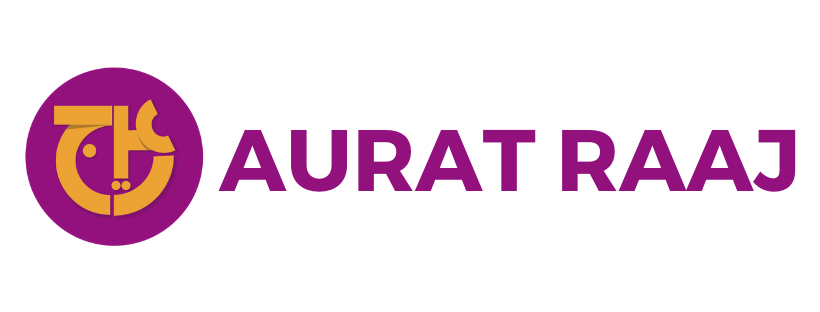“Jinnah Girls” breaking the silence
Two software engineers giving a voice to the voiceless with an Urdu speech therapy platform
Meet 8-year-old Wajeeh Asif. He loves dancing like Shahrukh Khan, running around his classroom much to his teacher’s dismay and melting into his mother’s arms when she comes to pick him up everyday from school. Wajeeh is like any other excited boy except he’s a slow learner and has a severe speech impediment. Everyone can recognise his innate intelligence and humour, but only his teachers & family are able to completely understand him when he talks.
But Rabab Fatima & Shanza Khan Shahani, two software engineers from Karachi’s first women’s university Jinnah, are planning to change that with their Urdu digital speech therapy platform Bolo Tech. Their technology aims to “break the silence” by integrating audio/visuals that help with correct pronunciation of urdu alphabets and words, includes lessons plans based on Urdu Qaida and offers interactive games that improve one’s speech. Once they perfect their platform in urdu language, they plan to develop lesson plans and curriculum in regional languages of Pakistan.
Today, they sit inside Wajeeh’s school VISL WES in a tiny classroom testing out their software with kids who struggle with speech problems. The school is a haven for children and adults who have special needs or are slow learners.Special needs children suffer from visual and hearing impairments while slow learners are those that have the ability to learn necessary academic skills, but below the level of their peers.
As soon as the girls open their laptop to show kids their software, Wajeeh lines up to try it out. He loves it so much, he breaks the line again and again to have another go at it. Slow learner or not, Wajeeh absolutely adores technology in any form. His mother who comes from far away to pick and drop him everyday says, “Wajeeh loves watching YouTube so much that we recently got an email from our internet provider warning us that we had gone above and beyond our monthly consumption limit. Wajeeh is the only one who uses the internet in our home.”
The Bolo Tech software could also be a game-changer for not just kids but also hearing-impaired adults who rely entirely on sign language to communicate with others. Speech therapy is extremely expensive in Pakistan with one session going up to 2000Rs an hour and it is also time-consuming for the patient, parent and the therapist.
A software that can be used at home for countless hours for practising can be crucial for those who don’t have the financial means to get individualised speech therapy sessions. It can also be critical for small schools like VISL WES who have a number of slow-learners in their classrooms but not enough speech therapists to give them lessons.
“We’ve been running an advertisement to hire a speech therapist but we haven’t been able to replace our last resource who got a job at a top hospital in Karachi. Speech therapists are very hard to come by and retain in this city,” says the administrator of the school Muhammad Rafi Memon.
When the administrator sees how the software runs and how the kids interact with it, he provides the girls with constructive feedback so they can quickly improve it. He specialises in the field of special education since the late 80s and has coached teams from Pakistan who have competed in Paralympic Games. He not only understands the problems of his students, he grew up with two sisters and a brother who were blind from birth. With this school, he’s given employment to those who understand this field best. Take for instance visually impaired young man Umair who is currently getting his MPhil from Karachi University and teaches Braille to visually-impaired children.
The trip to the school for testing has been extremely heartening and heartbreaking at the same time for the two girls.
“We weren’t aware of how difficult simple tasks for these kids were before we started designing this software. Now we are even more committed to building something that could give these kids a real voice in society,” says Rabab one of the cofounders of the platform.
After testing, the girls head back to The Nest i/o, Karachi’s tech incubator backed by Samsung, USAID & Google and run by Jehan Ara one of the most important figures of the Pakistani software industry. They have been selected for a four-month incubation cycle where they will be given industry mentors, access to technology and top local and international investors.
“Every minute at The Nest counts for us as we will never get the same opportunity to be able to work on the product without any interruption the way we have gotten at this incubation center,” says co-founder Shanza. “At home, there are always electricity shortages, internet problems and family members disrupting our work flow,” says Shanza.
The Nest recently opened the doors for many startups to be able to pitch ideas to educational initiatives like ILM IDEAS. The confident and hardworking girls were selected from 20+ external and internal startups from Pakistan and will be provided a small stipend for the next four months to help them improve their product.
“We’d love to try the software with schools in Islamabad and Lahore and interact with kids all around Pakistan,” they say while planning a trip to Lahore in late March. If you’d like to connect with these talented female techpreneurs, and support their journey with mentorship, funding and grants, get in touch with them through The Nest.


